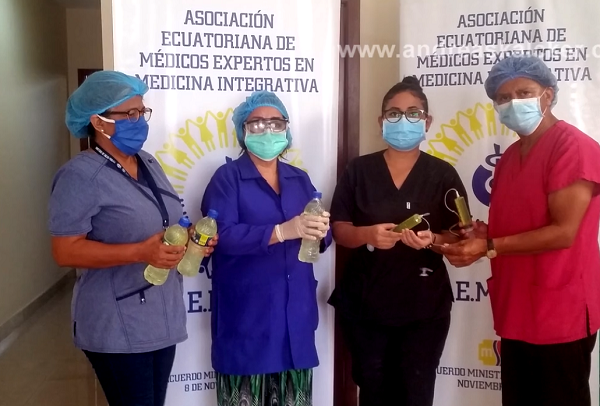
In their study, which appeared in the journal Cell Reports, the researchers reported that increasing one's intake of vitamin K could help reduce one's risk of diabetes. This is because of the crucial role vitamin K plays in a chemical process called gamma (y)-carboxylation, which occurs in cells and affects the proteins they secrete.
The study found that y-carboxylation is important for pancreatic beta cells and their ability to produce insulin, the hormone that induces cells to take up glucose from the bloodstream. Diabetes usually develops due to insufficient beta cells or the insufficient production of insulin by beta cells. (Related: Study: Intermittent fasting is key to addressing diabetes pandemic.)
The link between vitamin K and diabetes
According to statistics, the prevalence of diabetes has significantly increased in nearly all countries over the past few decades. In fact, the World Health Organization (WHO) now considers diabetes a global epidemic that causes millions of deaths each year. It also warns that diabetes is a major cause of blindness, kidney failure, heart attacks, stroke and lower limb amputation.
Vitamin K, a fat-soluble nutrient found in a variety of plant- and animal-based foods, is known for its role as a coenzyme. Coenzymes are important drivers of biochemical reactions because of their roles as catalysts and enzyme activators. Vitamin K acts as a coenzyme for carboxylase, an enzyme involved in the synthesis of proteins necessary for blood clotting (prothrombin) and bone-building (osteocalcin). (Related: 8 Science-backed health benefits of vitamin K.)
As a final step in protein biosynthesis, vitamin K-dependent carboxylase facilitates the post-translational modification (y-carboxylation) of osteocalcin, which leads to its activation. Aside from regulating bone mineral maturation, carboxylated osteocalcin has also been found to regulate the expression of insulin genes and markers of beta cell proliferation. Several studies have shown that having high levels of carboxylated osteocalcin improves insulin sensitivity and reduces the risk of Type 2 diabetes.
Vitamin K-dependent y-carboxylation improves insulin production in beta cells
Several reports suggest that low vitamin K intake or vitamin K insufficiency in humans is associated with an increased risk of developing metabolic syndrome, a cluster of conditions that raise a person's risk of coronary heart disease, stroke and Type 2 diabetes. Researchers have also observed that low levels of vitamin K in morbidly obese patients correlate positively with the presence of Type 2 diabetes, while supplementation with vitamin K tends to decrease their fasting blood glucose levels significantly.
These observations strongly suggest a link between vitamin K insufficiency and the risk of developing diabetes, but the underlying mechanisms in this relationship remain unknown. To shed light on this, Canadian researchers conducted several experiments on beta cells isolated from mice and humans. They found that under conditions of metabolic stress, mice beta cells that lacked y-carboxylation due to vitamin K insufficiency "failed to adapt their insulin secretion."
On the other hand, treatment with vitamin K supported y-carboxylation activity and protected beta cells from the harmful effects of high glucose and metabolic stress. This suggests that vitamin K-dependent y-carboxylation plays an important role in the survival and proper function of pancreatic beta cells, especially in times of cell duress. The ability of beta cells to adapt to unfavorable conditions ensures sufficient insulin production when needed for blood sugar control.
In human beta cells, the researchers observed a similar trend, with vitamin K-dependent y-carboxylation being positively correlated with improved insulin secretion in response to glucose. They also identified a protein in the endoplasmic reticulum – the cell organelle where protein synthesis occurs – of beta cells called EGRP that helps regulate the binding of calcium to proteins.
The researchers found that the vitamin K-dependent y-carboxylation of EGRP protects beta cells from calcium overfilling, while the lack of y-carboxylation does the opposite and causes hyperinsulinemia (higher-than-normal insulin levels). Intracellular calcium plays a huge role in the release of insulin from beta cells, which is why its regulation is important for proper pancreatic beta cell function. Calcium dysregulation in beta cells is a common feature of Type 2 diabetes. (Related: Type 2 diabetes can be avoided with the right kind of diet – do you know which one?)
"Our study shows that this protein plays an important role in maintaining physiological levels of calcium in beta cells in order to prevent a disturbance of insulin secretion," Dr. Julie Lacombe, one of the study authors, said of EGRP. "Vitamin K through gamma-carboxylation is essential for ERGP to perform its role."
Vitamin K is an important nutrient that you can get from various foods and supplements. Vitamin K comes in two forms, namely, phylloquinone (vitamin K1) and menaquinones (vitamin K2). Vitamin K1 can be found in green leafy vegetables, such as kale, spinach, broccoli and cabbage. Vitamin K2, on the other hand, is present in large amounts in fermented soybeans and in smaller amounts in meat, cheese and eggs.
According to a study published in Diabetes Care, high intake of both vitamin K1 and K2 is associated with a lower risk of developing Type 2 diabetes, although the effect is more pronounced with vitamin K2.
DiabetesCure.news has more stories about how to manage diabetes naturally.
Watch the following video to learn more about the health benefits of vitamin K2.
This video is from the Holistic Herbalist channel on Brighteon.com.
More related stories:
Vitamin K1 and K2: Which form benefits cardiovascular health?
Vitamin K: The anti-aging supplement you probably haven’t heard about.
Vitamin D found to prevent diabetes: STUDY.
Study: Eating 80% of your daily calorie intake before 1 p.m. could help prevent diabetes.
Sources include:
Please contact us for more information.






















